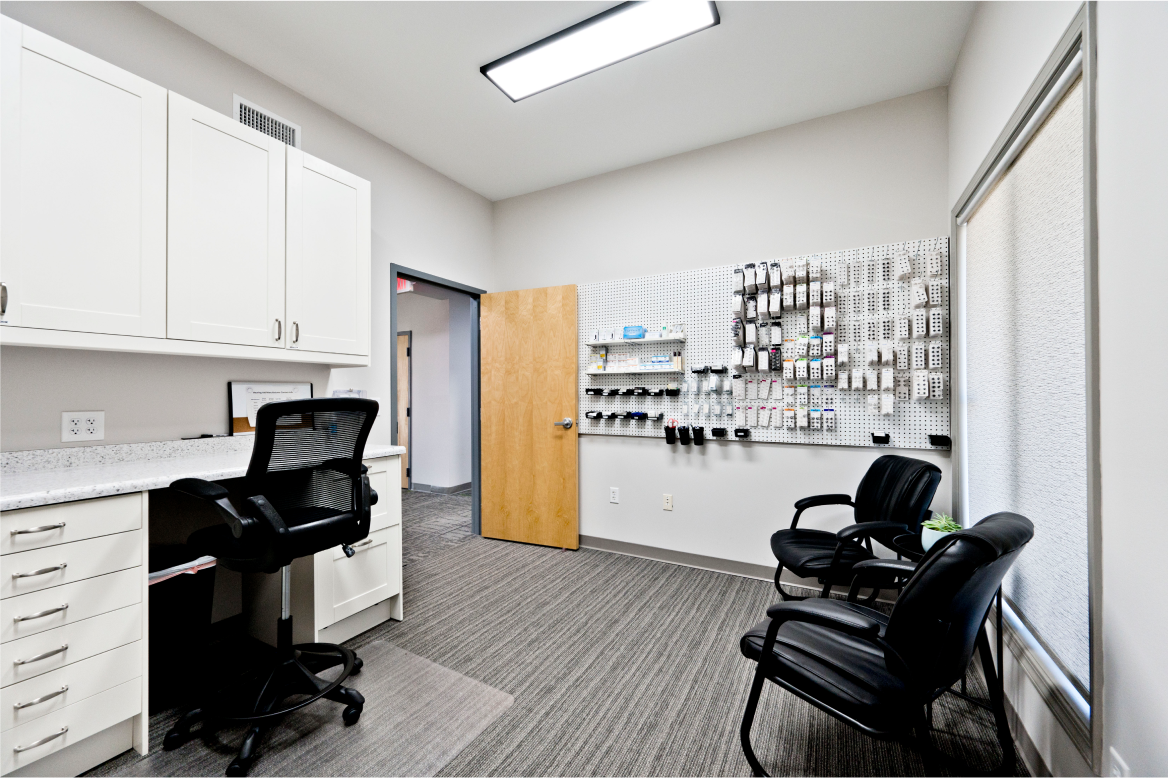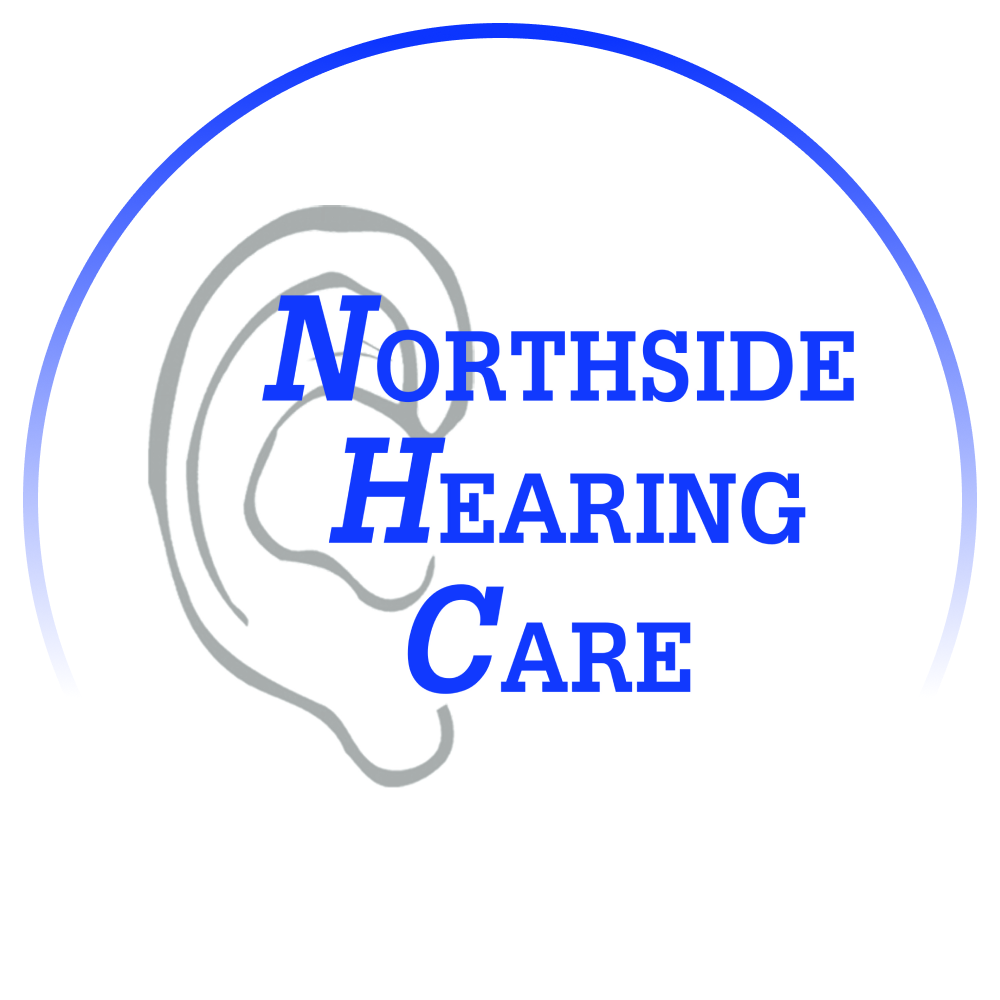TINNITUS

At Northside Hearing Care
We understand the impact that tinnitus can have on your quality of life. This ringing, buzzing, or humming in the ears can make it hard to focus on tasks, follow conversations, or get a good night’s sleep. We’re here to help you effectively manage your symptoms and regain control over your listening experience. From comprehensive evaluations to personalized treatment plans and ongoing support, we’ll help you find relief from tinnitus.
Request an Appointment
Understanding Tinnitus
Tinnitus is a common condition characterized by the perception of sound in the ears when there’s no external source of sound. It can manifest as a hissing, roaring, whooshing, buzzing, whistling, or ringing sound. Tinnitus is different for everyone, and it may be constant or intermittent. While tinnitus itself is not a disease, it can be a symptom of an underlying health issue, such as hearing loss or an ear injury. Tinnitus can also vary in severity and impact, ranging from a minor annoyance to a significant disruption of daily life.
Causes of Tinnitus
Some common factors contributing to tinnitus include:
- Noise Exposure: Prolonged exposure to loud noises, such as heavy machinery, concerts, or firearms, can damage the delicate hair cells in the inner ear and lead to tinnitus.
- Age-Related Changes: As we age, changes in the auditory system, including reduced blood flow and nerve function, can increase the risk of developing tinnitus.
- Hearing Loss: Tinnitus is often associated with hearing loss, as damage to the auditory system can lead to changes in how the brain processes sound, resulting in the perception of phantom noises.
- Medical Conditions: Certain medical conditions, such as Meniere's disease, otosclerosis, temporomandibular joint (TMJ) disorders, and vascular disorders, can contribute to tinnitus symptoms.
- Ear Infections: Infections of the ear, such as otitis media or otitis externa, can cause inflammation and fluid buildup in the ear, leading to tinnitus symptoms.
- Medications: Some medications, including certain antibiotics, antidepressants, nonsteroidal anti-inflammatory drugs (NSAIDs), and chemotherapy drugs, may have tinnitus as a side effect.
- Traumatic Injury: Head or neck injuries, such as concussions or whiplash, can damage the auditory system and result in tinnitus.
- Stress and Anxiety: Emotional stress, anxiety, and depression can exacerbate tinnitus symptoms or make them more noticeable.
Comprehensive Evaluation
Tinnitus management begins with a comprehensive evaluation to assess the severity and impact of your tinnitus and identify any underlying causes or contributing factors. This may include a detailed medical history, a physical examination of the ears, and specialized tests such as audiometry, otoacoustic emissions (OAEs), and tinnitus pitch matching.
Request an Appointment
Personalized Treatment Options
Based on the results of your evaluation, our hearing health specialists will develop a personalized treatment plan tailored to your unique needs and preferences. Treatment options may include:
- Sound Therapy: Sound therapy involves using external noise sources to mask or distract from the perception of tinnitus. This can include white noise machines, sound generators, or specially designed hearing aids with built-in sound therapy features.
- Hearing Aids: For individuals with hearing loss, hearing aids are often the most effective treatment option. These devices amplify sound and improve overall hearing clarity, making it easier to communicate and engage in daily activities. Our clinic offers a variety of hearing aid options from leading manufacturers and will help you find the perfect devices.
- Cognitive Behavioral Therapy (CBT): CBT is a type of therapy that focuses on changing negative thoughts and behaviors associated with tinnitus. With counseling and education, you can develop coping strategies and reduce the emotional distress often associated with tinnitus.
- Tinnitus Retraining Therapy (TRT): TRT is a comprehensive treatment approach that combines sound therapy with counseling and education to help individuals habituate to the perception of tinnitus.
- Education and Support: Our hearing health specialists provide education to help you better understand tinnitus and learn coping strategies to manage your symptoms effectively. This may include relaxation techniques, stress management strategies, and other coping strategies to help you find tinnitus relief.
Ongoing Support
Managing tinnitus is an ongoing process, and our team is here to support you every step of the way. We offer regular follow-up appointments to monitor your progress, adjust your treatment plan as needed, and provide additional support and guidance as you navigate your tinnitus journey.
Take Control of Your Tinnitus
Don't let tinnitus control your life. Contact us today to schedule a consultation and learn more about your tinnitus management options. We can help you find relief from tinnitus and regain control over your auditory experience.
Request an Appointment
Contact Us
Thank you for considering Northside Hearing Care for your hearing health needs. We look forward to welcoming you to our clinic and providing you with the personalized care and support you deserve. Contact us today to schedule an appointment with one of our hearing health specialists.
Contact Us
